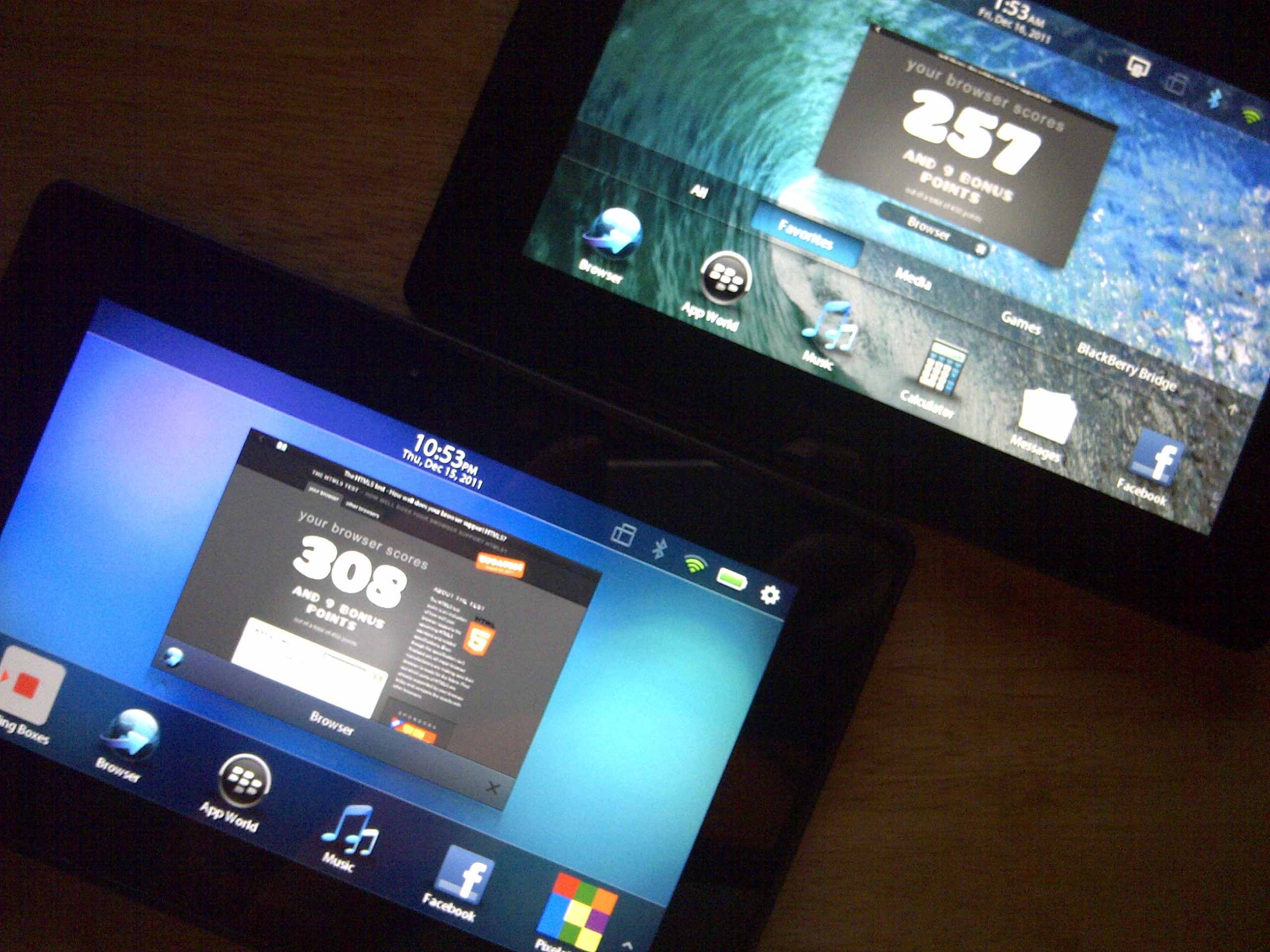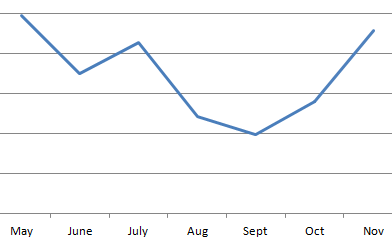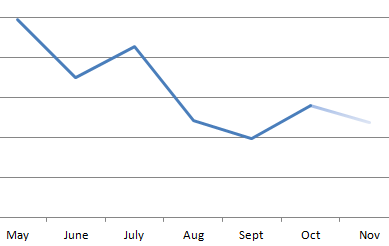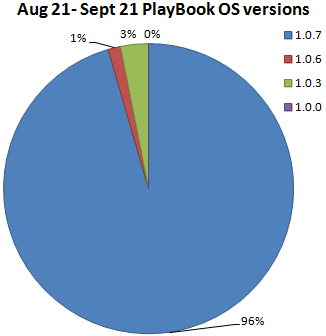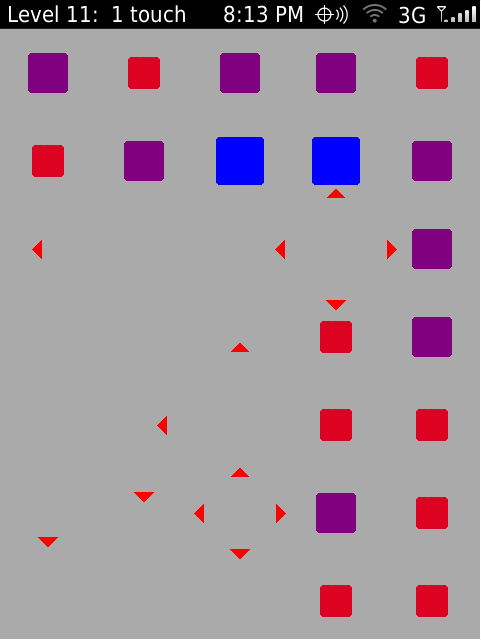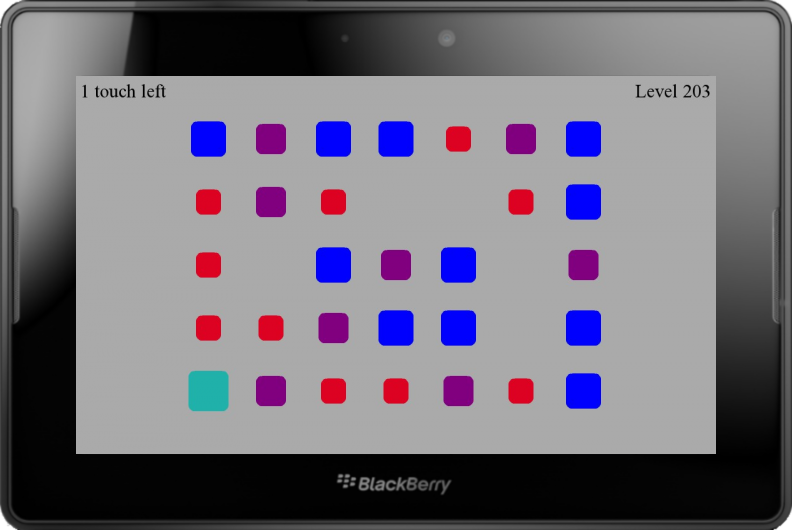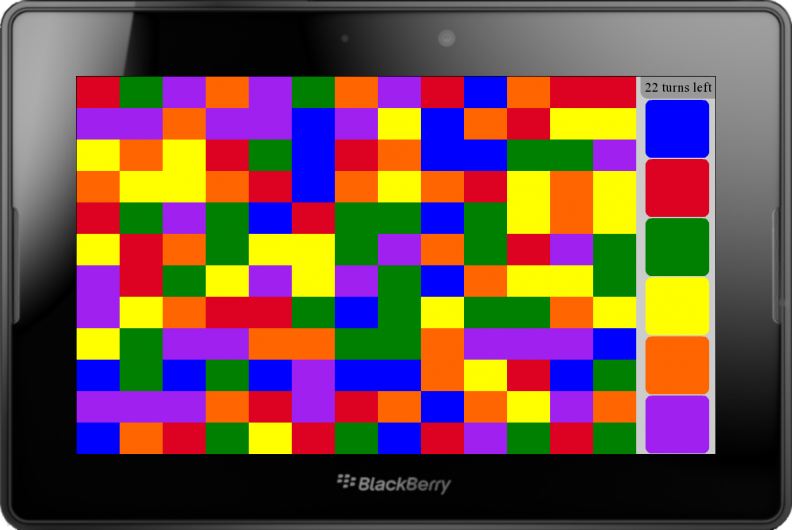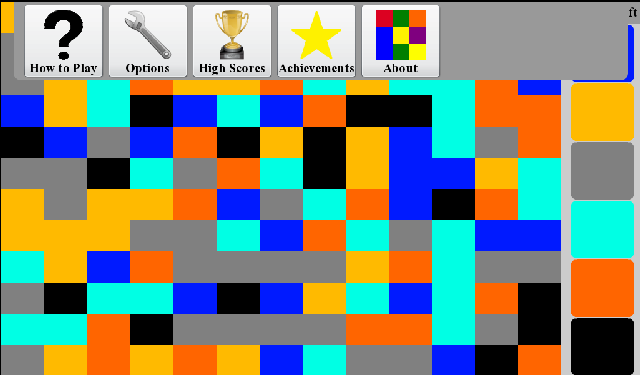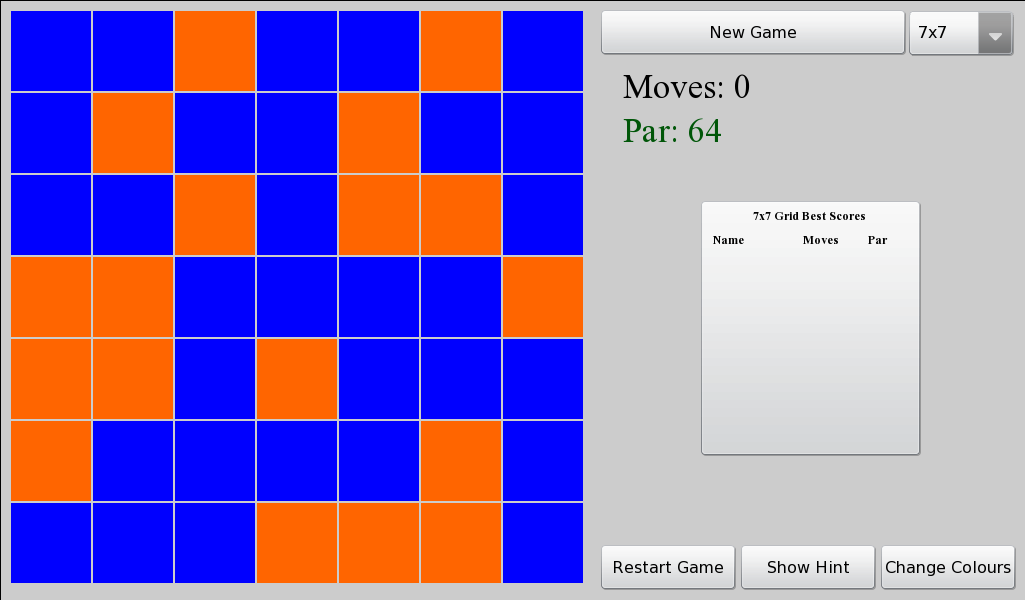I should start by pointing out that I expected version 2.0 to be rolled out to everyone by the end of DevCon, and am extremely disappointed that it did not happen. OS updates have not exactly been coming every two weeks like it looked like early after release, and the most recent update is about two months old at this point.
Still RIM did release a developer beta of the update, and it is worth taking a look at that. This is a true beta so there are many apps not included, and there are issues with Bridge but I think it is safe to ignore those things for now. The changes on the OS level are actually pretty limited, and include an overhaul of the homescreen, support for Android Java apps, and AIR 3.0.
The new homescreen is pretty nice, and most usefully now includes folders. Creating folders is pretty awesome one you figure out how to do it, but discovering how to do so is not that intuitive. Most of the other changes relate to an increased preview size for apps in the card view, which I think is just a result of the designers trying to figure out how to make BBX look decent on a phone sizes screen.
Android support is nice, but all of the apps launch in a single ‘Android player’ which means that they multitask differently, and are not quite true first level applications. Unless this is fixed, I think that many users will be disappointed by Android apps on BBX.
Most disappointing is what 2.0 has still not added. Mainly spell check/auto completion. Since launch, Docs to go has included a spell check, and some autocompletion (at least double space for a period) and it is completely unclear why this is not available for all text on a system wide level. More then any other feature this is the one that I really need.
